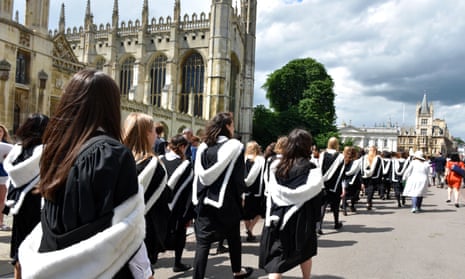Recently, I was having coffee with a final year PhD student about to submit his thesis. He was excited because he had just finished giving his first ever lecture. He had finally been able to prove himself and experience what his future job might entail.
Yet when we met later, he seemed downcast about the experience. It had taken him five hours to write his first 45-minute lecture – and several more to prepare the handouts and PowerPoint – but he was just paid for the single hour that he was in the room. Afterwards, students emailed him with follow-up questions, and some asked to meet with him to talk about the content. He obliged all of them, but was not compensated for any of it.
But just being paid at all is a major step forward for graduate students like my friend. He belongs to one of the largest faculties in the humanities at Cambridge, which, up until last year, did not pay grads for any teaching done for the faculty. It was only after a massive union campaign that graduate student teaching for that faculty moved from being considered “training” to paid work. This has exposed a system of exploitation still baked into Cambridge’s model of teaching.
Graduate students are the freelancers of the university system. They are often forced into exploitative teaching arrangements because they need experience to continue as academics. The university classifies this teaching as training even though little (often no) training is provided. Graduate students crave the opportunity to teach and share knowledge with undergraduates. This creates self-exploitation. Their passions and needs are employed against them, and they are denied access to decent wages and working conditions.
As the University and College Union (UCU) anti-casualisation officer at Cambridge, I hear many stories like the one told to me by my friend. Aside from lecturing, most teaching at Cambridge is done through one-on-one supervisions organised through colleges, rather than faculties. It is a major selling point of the university and the competitive advantage it gives students is one of the main reasons why they choose to study here. This system relies on the labour of graduate students to fill the gaps that can’t be met by permanent faculty members.
Graduate students at Cambridge are considered self-employed and so are denied even the right to a contract for the work they do. They have no control over the wages offered to them – as a genuine self-employed contractor would – and many don’t even know what their pay rate should be. Payment varies widely for the same work being done across the university. In recent conversations with the university, Cambridge UCU was told that graduate students should enjoy the flexibility of being self-employed. Yet they are not able to enjoy any sense of genuine negotiation over wages or working conditions.
When asked for comment, a university spokesperson said: “The University of Cambridge has been working constructively with UCU, Unison and Unite to address a number of concerns raised around the use of fixed term and casual contracts. A working group which includes union representatives has met on an almost monthly basis and we believe that we are continuing to make progress.”
Graduate students are theoretically not obligated to teach, but without their work the Cambridge supervision system would collapse. Their desperate need for experience and income means that in reality they try to teach as much as they possibly can, and the university knows and counts on this. Even then, they are not allowed to call themselves workers, but “students”. This devalues their work. They have been denied incremental pay raises, appraisals, mentorship, or even proper training.
Cambridge is today opening its doors to prospective students for open days. I encourage all interested students to come to Cambridge – it’s a wonderful place to learn. But this year, staff will be using these open days to call for transparency. We want students to know about the exploitation behind Cambridge’s unique teaching offer.
Undergraduates invest massive sums of money in paying for their education. They deserve their teaching staff to be valued as workers and given a proper wage.
Sandra Cortijo is a postdoctoral researcher at the University of Cambridge and the local University and College Union branch anti-casualisation officer
